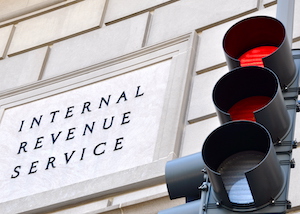Government Affairs
The IRS Tax-Exempt and Government Entities (TE/GE) Office has updated its compliance program. That includes compliance strategy initiatives that affect some retirement plans.
In their fiscal year 2021 program letter, TE/GE Commissioner Tammy Ripperda and Deputy Commissioner Edward Killen write that their office’s plans include:
- supporting tax compliance in “the global high wealth arena, especially for private foundations and retirement plans of closely held businesses, such as employee stock ownership plans”;
- fostering voluntary compliance by using enhanced techniques against civil and criminal fraud, and by recommending criminal prosecutions and/or civil penalties or injunctions against tax evasion; and
- developing additional online tools and resources, such as an online interactive tax assistance tool to help in avoiding excess contributions to 401(k) plans.
The TE/GE says that its compliance strategy for 2021 includes the following:
- Small Exempt Organizations that Sponsor Retirement Plans. The TE/GE plans to review retirement plans of small exempt organizations to determine whether (1) plan investments are properly administered, (2) there are any party-in-interest transactions in the plan trust and (3) any participant loans violate Internal Revenue Code Section 72(p).
- One-Participant 401(k) Plans. This strategy will focus on review of one-participant 401(k) plans to determine if there are operational or qualification failures, income and excise tax adjustments, or plan document violations.
- Required Minimum Distributions in Large Defined Benefit Plans. This strategy will focus on ensuring retirement plan sponsors comply with Internal Revenue Code Section 401(a)(9) to begin distribution of benefits by April 1 following the calendar year an employee turns 70½.
- Participant Loans. The TE/GE intends this strategy to ensure that participant loans comply with Section 72(p) rules on maximum loan balances and Section 72(t) re-payment rules for early distributions before age 59½. This will entail verifying whether participant loans of retirement plans that hold a high percentage of participant loans to total assets of the trust are being repaid on time if the loan balance remains consistent or increases for more than one year.
The TE/GE plans to use examinations in pursuing these strategies.
- Log in to post comments
